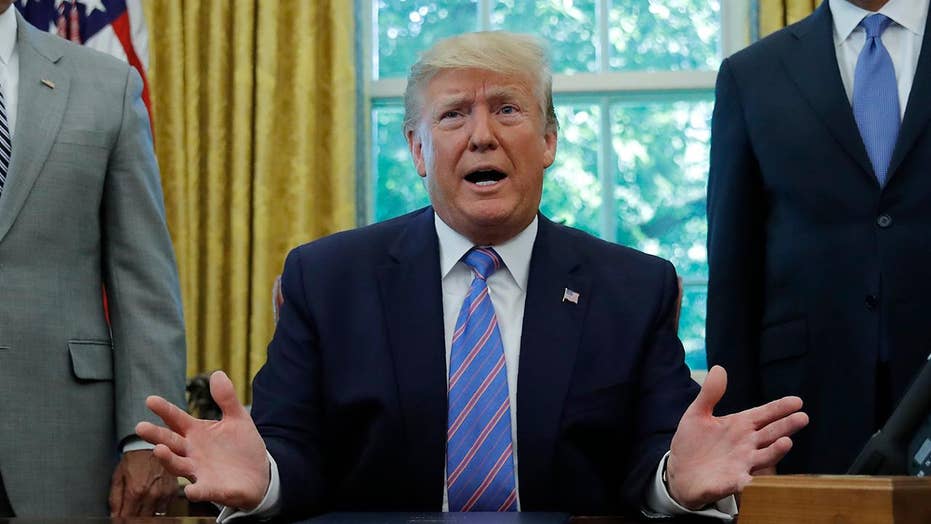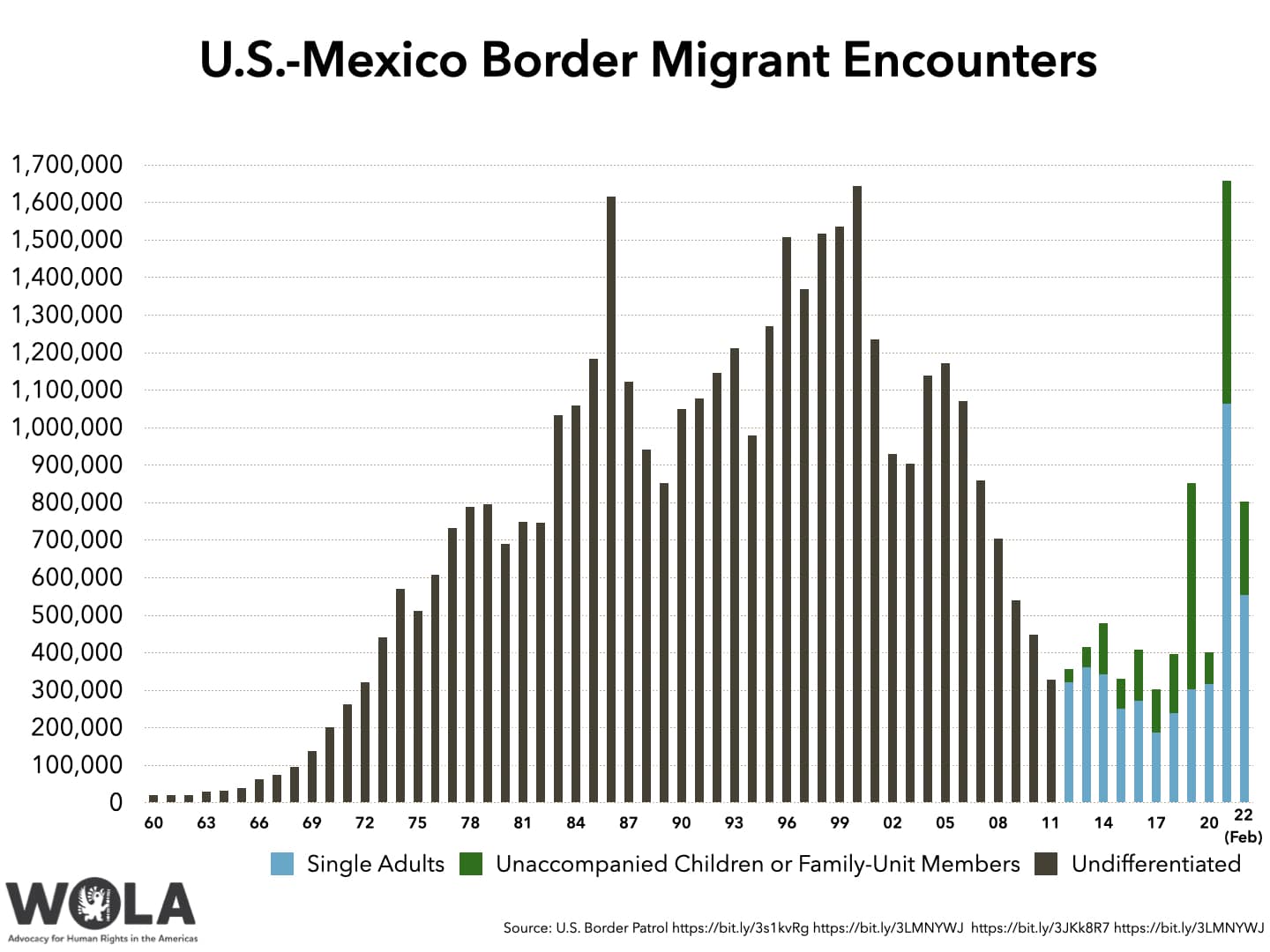The Trump Administration's Immigration Crackdown: A Legal Analysis

Table of Contents
Increased Border Security and the "Zero Tolerance" Policy
The Trump administration's "zero tolerance" policy, implemented in 2018, aimed to deter illegal immigration by prosecuting all adults crossing the border illegally. This policy led to the highly controversial separation of children from their parents at the border, sparking widespread condemnation and legal challenges. The goal was to create a strong deterrent effect, but the human cost was immense.
- Legal Challenges: Numerous lawsuits challenged the legality of family separation, citing violations of due process and the potential for lasting psychological trauma on separated children. Cases like Ms. L v. ICE highlighted the challenges of reuniting families and the lasting impact of separation.
- Legal Basis: The policy's proponents argued it was justified under existing immigration laws that criminalize illegal entry. However, critics argued that the policy's implementation violated international human rights law and lacked sufficient procedural safeguards.
- Impact on Asylum Seekers: The "zero tolerance" policy disproportionately affected asylum seekers, many of whom were fleeing persecution and violence in their home countries. The fear of family separation further deterred individuals from seeking asylum, despite their legal right to do so.
Changes to Asylum Law and Procedures
The Trump administration implemented significant changes to the asylum process, making it more difficult for individuals to qualify for asylum. These changes included stricter eligibility criteria, expedited removal procedures, and limitations on credible fear interviews.
- Impact on Vulnerable Populations: These changes disproportionately harmed vulnerable populations, including women, children, LGBTQ individuals, and those fleeing domestic violence or gang persecution. The increased difficulty in proving credible fear led to a significant increase in asylum denials.
- Legal Basis: The administration justified these changes by citing concerns about asylum fraud and the need to streamline the asylum process. However, critics argued that these changes undermined the fundamental principles of asylum law and violated international human rights standards.
- Relevant Court Decisions: Several court decisions challenged the legality of these changes, highlighting concerns about due process violations and the potential for discriminatory enforcement.
Travel Bans and Restrictions on Immigration from Specific Countries
The Trump administration issued several executive orders restricting entry from several Muslim-majority countries, sparking widespread protests and significant legal challenges. These travel bans were defended as necessary for national security, but critics argued they constituted religious discrimination and violated the principle of equal protection under the law.
- Executive Orders: Multiple versions of the travel bans were issued, each facing legal challenges and revisions. The Supreme Court ultimately upheld a modified version of the ban, but the legal battle highlighted the significant constitutional concerns.
- Supreme Court Rulings: The Supreme Court's rulings on the travel bans were highly controversial, with dissenting opinions emphasizing concerns about religious discrimination and the potential for abuse of executive power.
- Impact on International Relations: The travel bans negatively impacted US relations with several countries and raised concerns about the US's commitment to human rights and international law.
Increased Interior Enforcement and Deportation
The Trump administration significantly expanded the activities of Immigration and Customs Enforcement (ICE), leading to increased interior enforcement and deportations. This resulted in a climate of fear within immigrant communities, even among those with legal status.
- Sanctuary City Policies: The administration's efforts to crack down on sanctuary cities—cities that limit cooperation with ICE—highlighted the legal tension between federal immigration law and local autonomy. The legality of sanctuary city policies remained a subject of ongoing legal debate.
- Impact on Undocumented Immigrants and Mixed-Status Families: Increased ICE enforcement led to a significant rise in deportations, separating families and disrupting communities. The impact on undocumented immigrants and mixed-status families was particularly severe.
- Legal Challenges Related to Detention and Deportation: Numerous legal challenges focused on due process violations in detention and deportation proceedings, including issues related to access to legal counsel and fair hearings.
Conclusion
The Trump administration's immigration crackdown, characterized by increased border security, changes to asylum law, travel bans, and expanded interior enforcement, faced substantial legal challenges. These policies, while framed as necessary for national security and border control, raised serious concerns about human rights, due process, and the rule of law. The lasting impact of these policies, including the separation of families and the chilling effect on asylum seekers, continues to be debated. The ongoing legal and political battles surrounding these issues highlight the critical need for a comprehensive and humane approach to immigration reform. Understanding the complexities of the Trump Administration's Immigration Crackdown is crucial for informed civic engagement. Continue your research on this critical issue and advocate for just and humane immigration policies.

Featured Posts
-
 Alcons 417 5 Million Acquisition Of Village Roadshow Approved
Apr 24, 2025
Alcons 417 5 Million Acquisition Of Village Roadshow Approved
Apr 24, 2025 -
 Us Market Slump Emerging Markets Post Positive Returns
Apr 24, 2025
Us Market Slump Emerging Markets Post Positive Returns
Apr 24, 2025 -
 Fewer Border Crossings White House Reports Decline In Canada U S Border Apprehensions
Apr 24, 2025
Fewer Border Crossings White House Reports Decline In Canada U S Border Apprehensions
Apr 24, 2025 -
 Navigate The Private Credit Boom 5 Key Dos And Don Ts
Apr 24, 2025
Navigate The Private Credit Boom 5 Key Dos And Don Ts
Apr 24, 2025 -
 Blockchain Security Enhanced Chainalysis Acquisition Of Alterya
Apr 24, 2025
Blockchain Security Enhanced Chainalysis Acquisition Of Alterya
Apr 24, 2025
